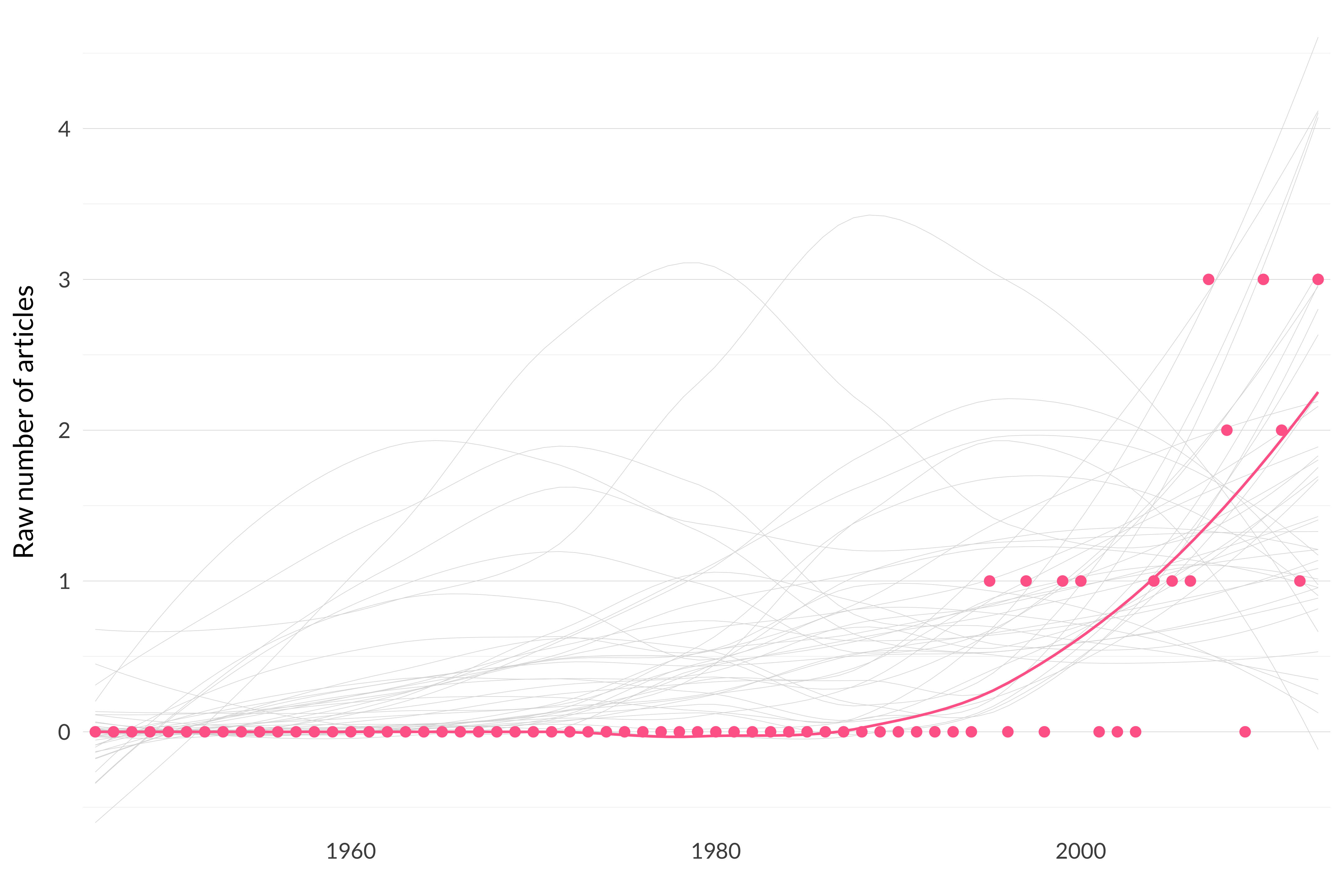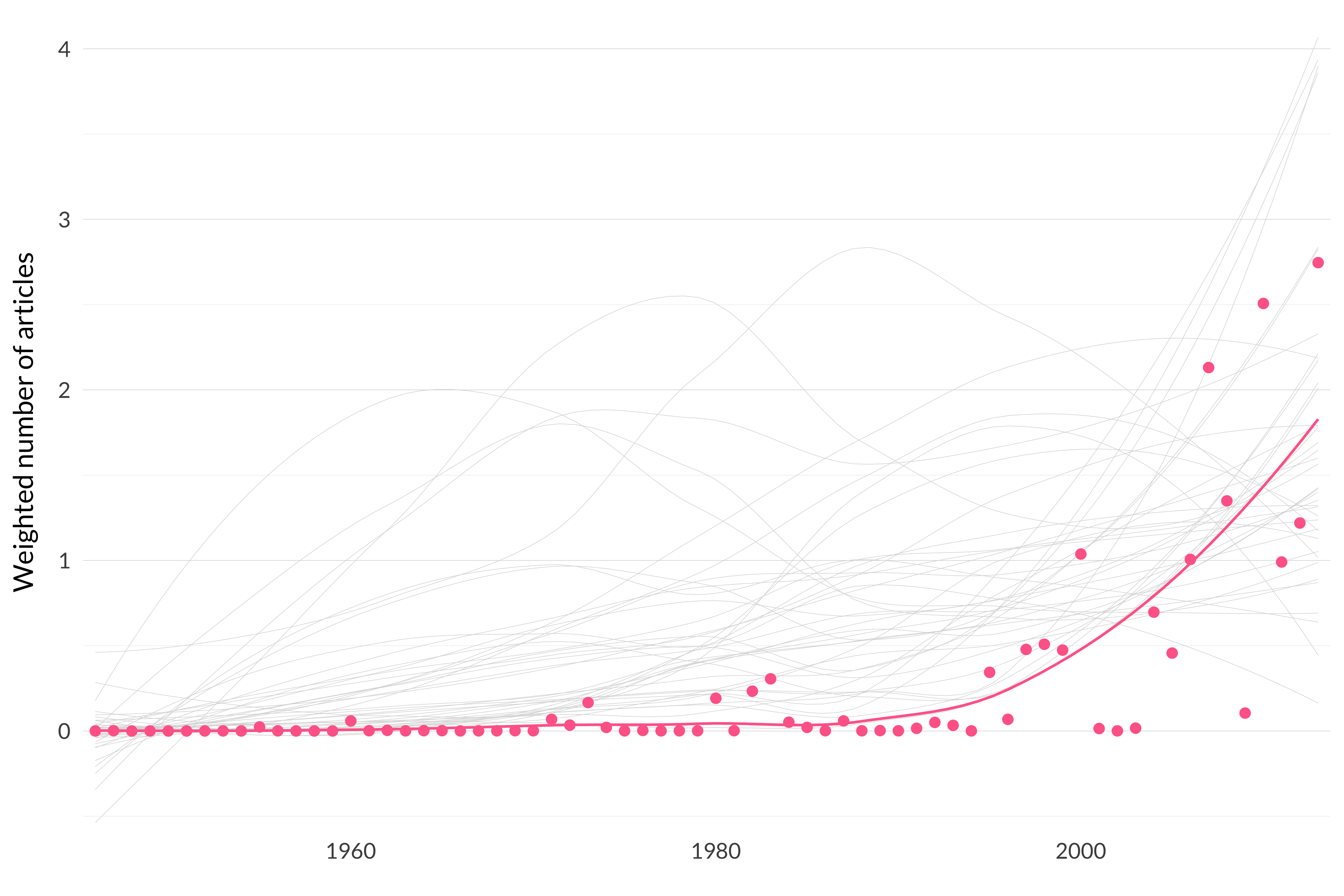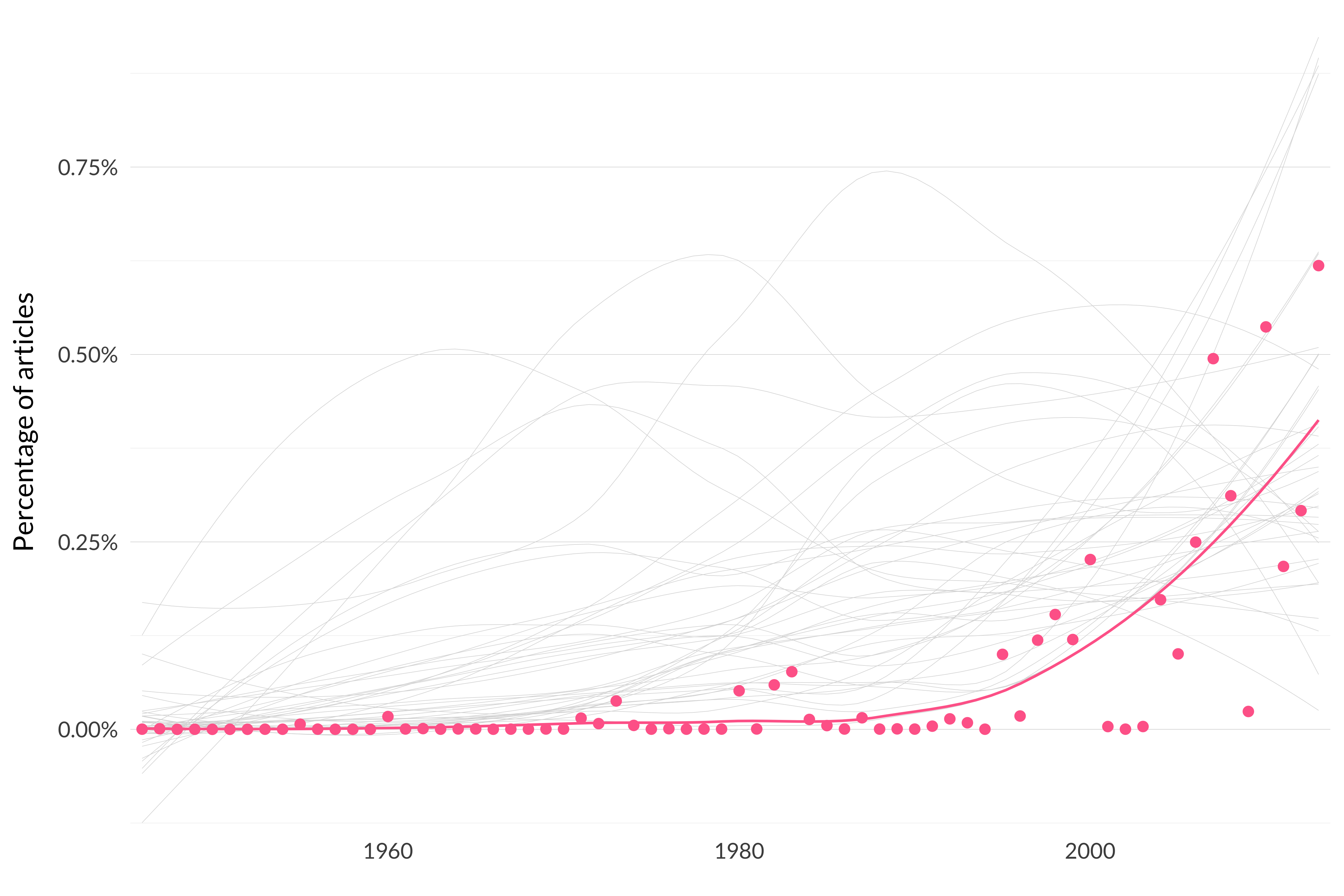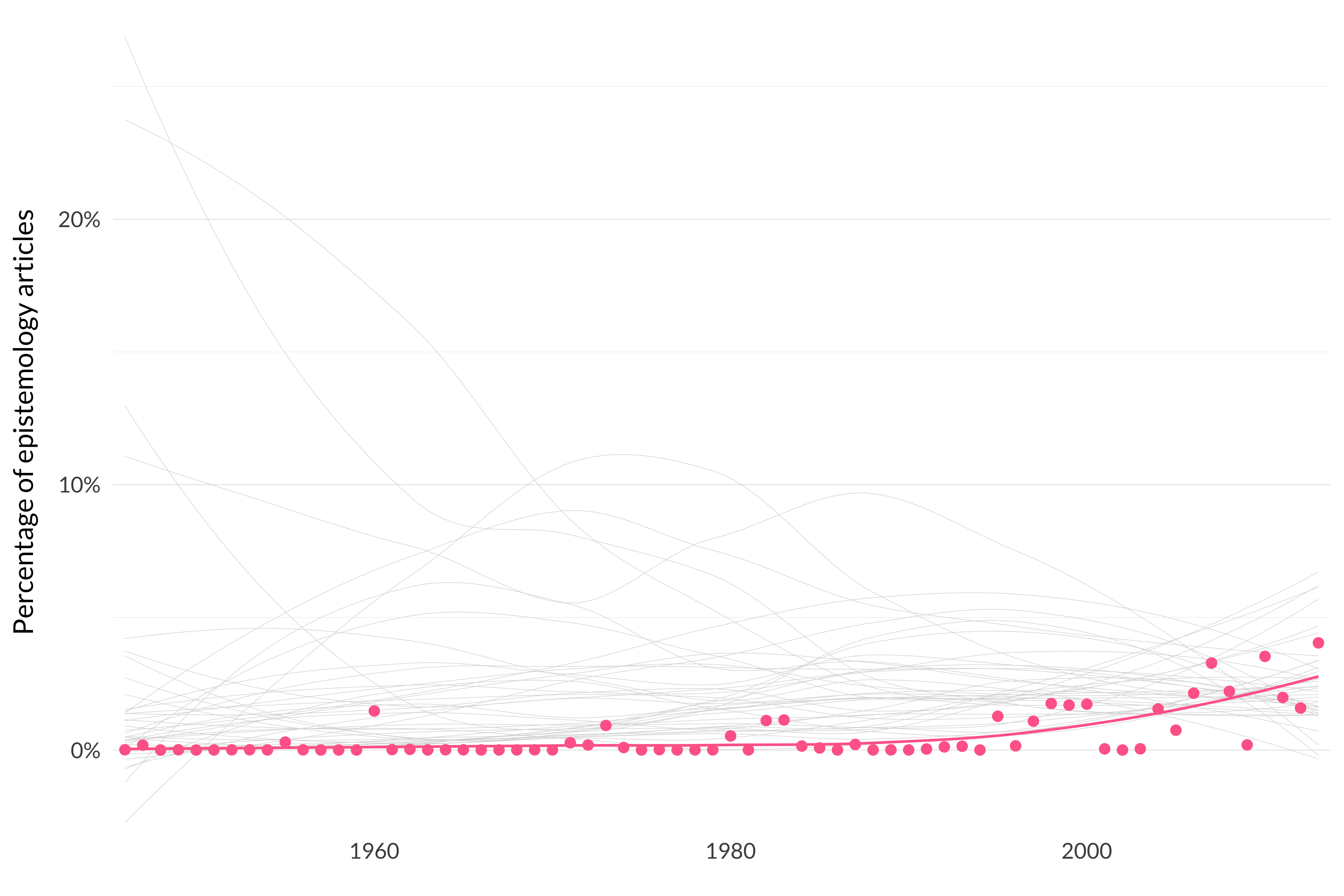6.39 Disagreement
Keywords: peer, disagreement, weight, methods, equal, project, mistake, equally, feldman, forming, judge, subjects, higher, method, defeater
Number of articles: 21
Weighted number of articles: 17.53203

Figure 6.161: Raw number of articles in topic 39, disagreement.

Figure 6.162: Weighted number of articles in topic 39, disagreement.

Figure 6.163: Percentage of philosophy articles in topic 39, disagreement.

Figure 6.164: Percentage of epistemology articles in topic 39, disagreement.
Characteristic Articles
- Michael Thune, 2010, “‘Partial Defeaters’ and the Epistemology of Disagreement,” The Philosophical Quarterly 60:355–72.
- Ruth Weintraub, 2013, “Can Steadfast Peer Disagreement be Rational?,” The Philosophical Quarterly 63:740–59.
- David Christensen, 2007, “Epistemology of Disagreement: The Good News,” Philosophical Review 116:187–217.
- Michael Bergmann, 2000, “Externalism and Skepticism,” Philosophical Review 109:159–94.
- Joshua Schechter and David Enoch, 2006, “Meaning and Justification: The Case of Modus Ponens,” Noûs 40:687–715.
- Han Van Wietmarschen, 2013, “Peer Disagreement, Evidence, and Well-Groundedness,” Philosophical Review 122:395–425.
- David Enoch, 2010, “Not Just a Truthometer: Taking Oneself Seriously (but not Too Seriously) in Cases of Peer Disagreement,” Mind 119:953–97.
- David Enoch and Joshua Schechter, 2008, “How are Basic Belief-Forming Methods Justified?,” Philosophy and Phenomenological Research 76:547–79.
- Adam Elga, 2007, “Reflection and Disagreement,” Noûs 41:478–502.
- Nathan L. King, 2012, “Disagreement: What’s the Problem? or a Good Peer is Hard to Find,” Philosophy and Phenomenological Research 85:249–72.
Highly Cited Articles
- Adam Elga, 2007, “Reflection and Disagreement,” Noûs 41:478–502. (0.9422557)
- John Turri, 2010, “On the Relationship Between Propositional and Doxastic Justification,” Philosophy and Phenomenological Research 80:312–26. (0.3428573)